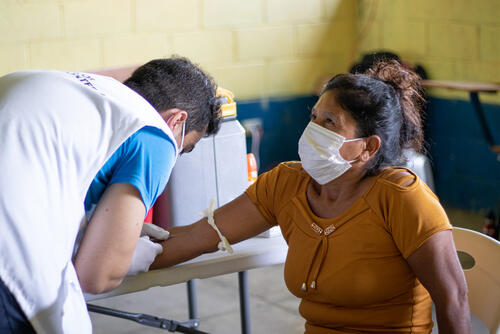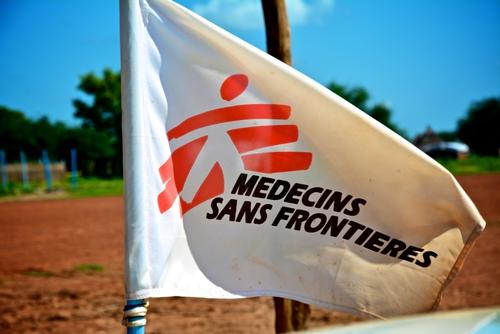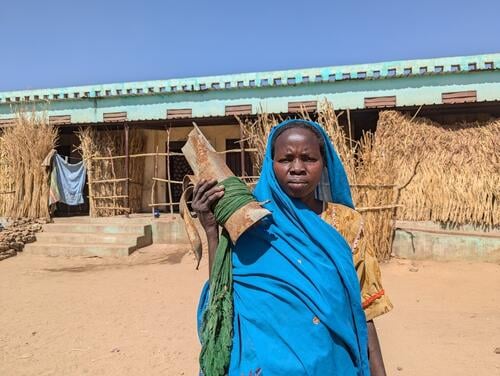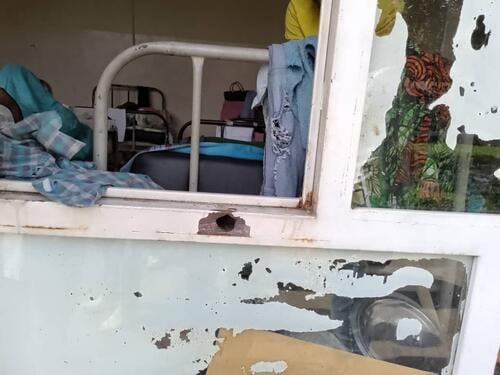Three years ago, Salomón discovered he was seriously ill with kidney disease. This happened after he was bitten by a snake in a sugarcane field in the municipality of La Gomera, Escuintla, in Guatemala, where agricultural production occupies most of the territory. Salomón, 54, who has no home and lives next to a garbage dump, had to stop working as his health situation became more complicated.
“I promise you that I couldn't move. I felt very weak and as soon as I stood up my knees buckled and I fell to the floor,” he says. For months his companion, Blanca, took care of him because he could no longer take care of himself.
I promise you that I couldn't move. I felt very weak and as soon as I stood up my knees buckled and I fell to the floor.Salomón, 54, has stage five CKDnt
For his check-ups he had to travel long hours on a bus to Guatemala City with Blanca. The strain of travelling impacted his emotional health and used his few economic resources.
“They even charge you for the bathroom there. Since I couldn't work, we had to sell everything we had. We don't even have a floor here, we live on this small piece of land, which floods every time it rains and smells of accumulated garbage,” he says.
Salomón, like several of his acquaintances and relatives, was diagnosed with chronic kidney disease of non-traditional origin (CKDnt) in stage five, the most advanced stage according to international guidelines on renal (kidney) pathology.
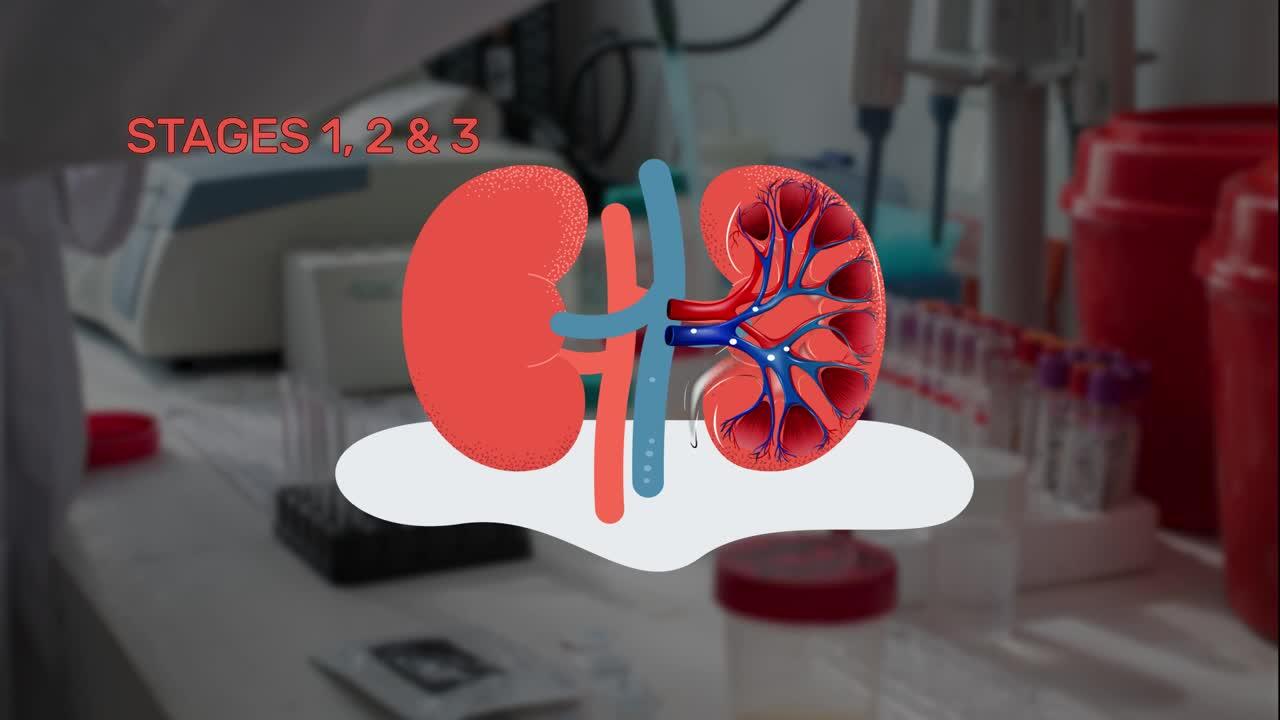
Mesoamerican endemic Nephropathy (MeN) a humanitarian crisis in Guatemala
The disease, also known as Mesoamerican endemic Nephropathy, is characterised by a progressive loss of kidney function, which affects the kidneys' ability to perform vital functions like eliminating wastes and concentrating urine.
According to medical anthropologist Frida Romero, this pathology “differs from chronic kidney disease because it affects young men without a history of chronic diseases, who generally work in agricultural crops, in extreme physical conditions, with high temperatures, in impoverished environments.”
In March of this year, because of health campaigns run by Médecins Sans Frontières (MSF) to raise awareness of this disease, Salomón decided to approach the MSF team.
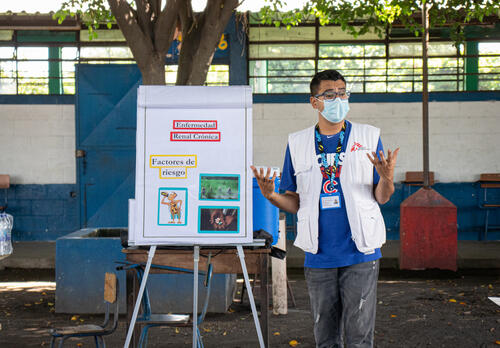
Pablo Izeppi, a psychologist, went to visit Salomón at his makeshift home to assess his condition and has since provided him with psycho-emotional support. “At that time, he did not look well, neither physically nor emotionally,” says Izeppi. “We referred him to the health centre, did the screening tests and referred him to the National Centre for Chronic Renal Disease because of the seriousness of his stage.”
Now, Salomón has a palliative care plan that allows him, in the short term, to improve his emotional and physical health.
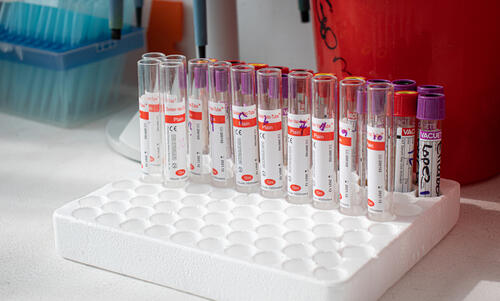
Barriers to healthcare
According to the LA Dialysis and Transplant Registry, Guatemala has the highest number of kidney disease patients in Latin America. Every year, 162 new patients requiring dialysis or haemodialysis therapy are registered, and there are currently more than 9,000 patients undergoing renal function replacement treatment in the country.
Escuintla, where Salomón lives, is one of the departments with the highest prevalence and incidence of chronic kidney disease in Guatemala. According to the Ministry of Health, between 2008 and 2015, mortality increased 18 per cent and morbidity 75 per cent.
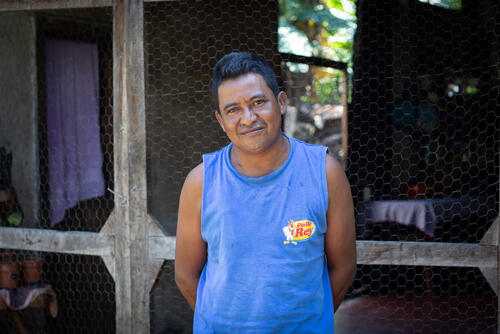
Because specialised renal disease services or third-level care are not available locally, patients must travel long distances. The trip to health institutions in the urban centres of the departments or in the capital of Guatemala can take several hours or even days and additional trips to obtain the medications or tests are often necessary.
There are a series of obstacles for people to receive proper care and many, like Salomón, end up exhausted because of the emotional and economic strain it causes them.
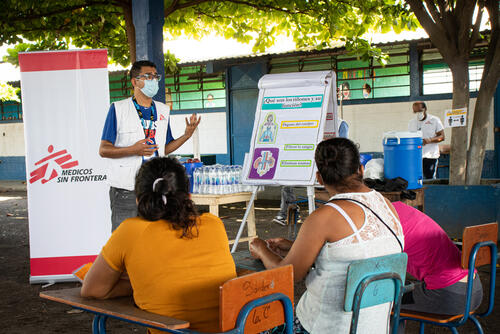
One year working with the community
We established our activities in the department of Escuintla with the aim of developing a comprehensive, simple, sustainable and reproducible care model that guarantees timely diagnosis and management to reduce the morbidity associated with CKDnt.
A multidisciplinary team has grown and strengthened to identify people suffering from this disease and support them according to their needs.

“Initially, we organised the medical, logistical, administrative and community teams in La Gomera, one of the three municipalities where MSF is active,” says Rodd Gerstenhaber, head of mission in Guatemala, Mexico and Honduras. “In February, we signed an agreement with the Ministry of Health to begin an intervention in the communities in order to strengthen prevention, early diagnosis, treatment and surveillance of CKDnt.”
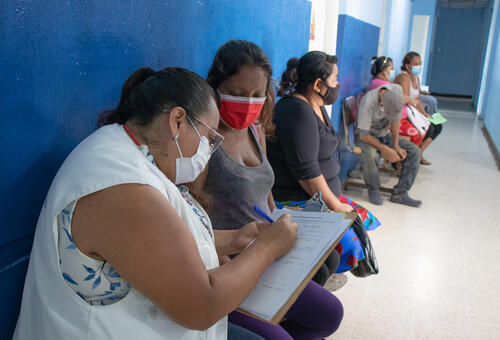
Knowing and diagnosing the disease
Oliver Sosa, MSF health promoter is part of a team of 10 people who visit communities every week to invite people for screenings and teach them about the disease, how to prevent it and how to detect it.
At 8.30 am the visit starts with hand cleaning and an explanatory talk. Then, people have their weight and blood pressure before a blood test. In one day, our teams can see between 40 and 60 people. Some of the tests are transferred to the laboratories and from there, the medical team refers the stage four and five cases to the National Centre for Chronic Renal Disease.
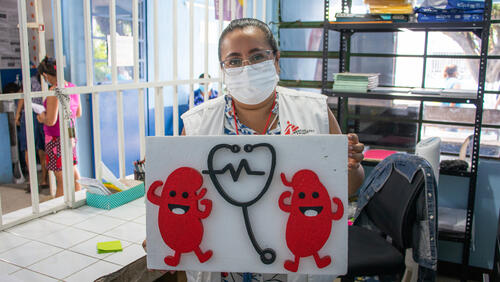
Between August 2021 and June 2022, our teams carried out 2,376 screenings to detect the disease, reached 3,030 people in community activities, while multidisciplinary follow-up was provided to more than 106 people who are in stages four and five of the disease.
We are working to strengthen the community's capacity to identify signs of risk and the need for comprehensive medical care.



